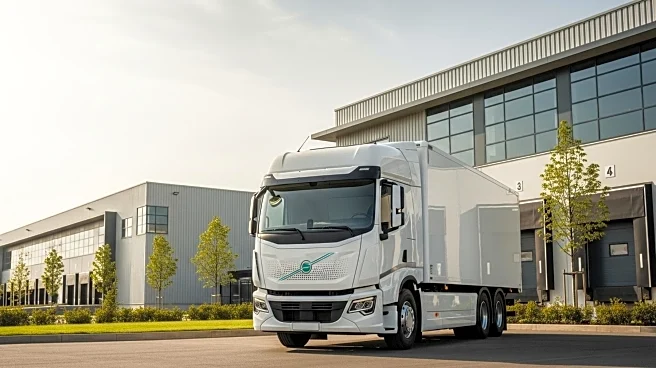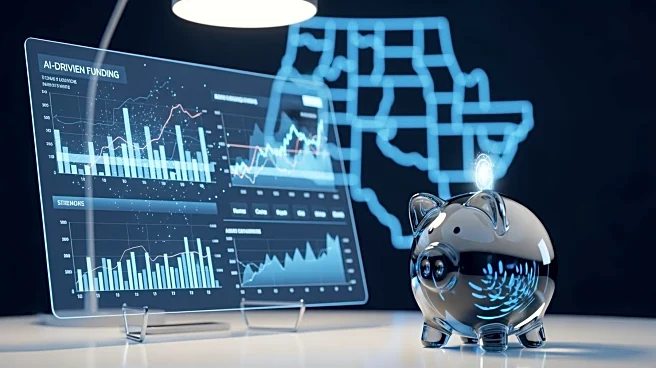What's Happening?
ADM has announced the addition of two 100% electric heavy goods vehicles (eHGVs) to its fleet for flour deliveries from its processing facility in Corby to customers across the UK. This expansion follows last year's introduction of electric tractor units in partnership with Voltloader. The new trucks are powered by certified renewable energy and are expected to reduce CO2 emissions by approximately 95 tonnes each per year. ADM has also installed a high-speed electric vehicle charger at its Corby facility to support the transition to electric vehicles, reducing reliance on third-party charging networks.
Why It's Important?
ADM's investment in electric trucks aligns with the UK's Zero Emission HGV and Infrastructure Demonstrator scheme, highlighting the company's commitment to reducing carbon emissions in the food supply chain. This move not only supports environmental sustainability but also enhances supply chain resilience by offering a reliable and eco-friendly alternative to diesel vehicles. The transition to electric trucks is a significant step towards achieving lower carbon intensity in logistics, which is increasingly important for meeting customer demands and regulatory requirements.
What's Next?
ADM's expansion of its electric truck fleet may encourage other companies in the logistics and food industries to adopt similar sustainable practices. As the infrastructure for electric vehicles improves, more businesses might invest in eco-friendly transportation solutions. This could lead to broader industry shifts towards sustainability, potentially influencing government policies and incentives for green logistics. ADM's commitment to innovation and sustainability may also strengthen its position as a preferred partner in low-carbon feedstocks.
Beyond the Headlines
The shift to electric vehicles in logistics presents opportunities for technological advancements and infrastructure development. It also raises considerations about the lifecycle environmental impact of electric vehicles, including battery production and disposal. As companies transition to greener alternatives, the focus on sustainable practices may extend beyond transportation to other areas of the supply chain, promoting a holistic approach to environmental responsibility.









